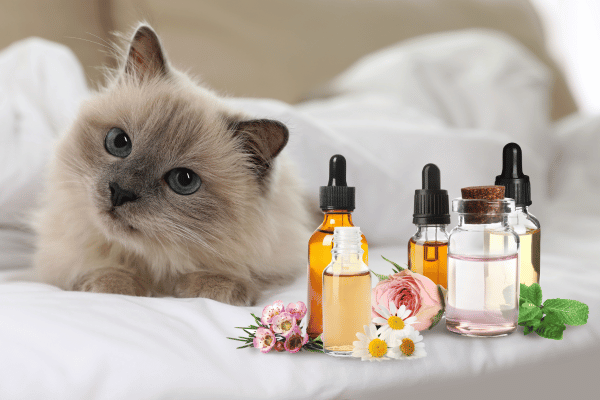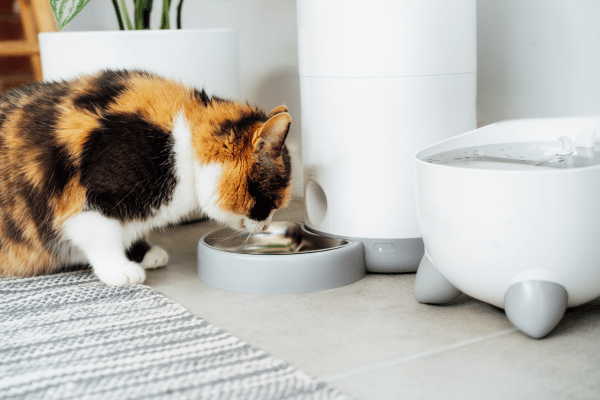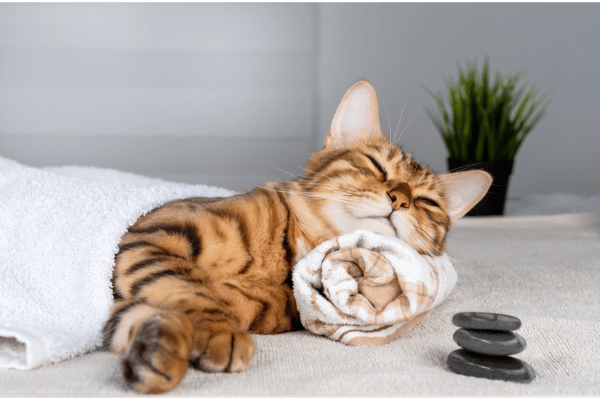Understanding ‘Adult Cat Care Essentials’ is crucial for every pet owner. This guide offers comprehensive insights into nurturing a healthy, happy adult cat.
Nutritional Needs for Adult Cat Wellness

Caring for an adult cat involves more than love and affection. Nutrition plays a pivotal role in their overall health. A balanced diet, rich in essential nutrients, supports their physical well-being. Importantly, each cat’s dietary needs vary based on age, activity level, and health status. Therefore, consulting a veterinarian for personalized advice is beneficial. This ensures your feline friend receives the right balance of proteins, vitamins, and minerals.
Regular health check-ups are vital in adult cat care. These visits allow early detection of potential health issues. Common concerns include dental problems, obesity, and kidney disease. During these check-ups, vets can provide valuable guidance on preventive care. This includes vaccinations, parasite control, and dental hygiene. Additionally, these visits are opportunities to discuss behavioral changes or concerns, ensuring your cat’s mental and physical health is attentively monitored.
Enrichment is essential for an adult cat’s mental and physical health. Activities that stimulate their natural instincts, like climbing and hunting, keep them engaged. Providing toys, scratching posts, and interactive playtime can significantly enhance their quality of life. Moreover, creating a safe and stimulating environment reduces stress and promotes well-being. Remember, an enriched cat is a happy cat, and this contributes significantly to their overall health and longevity.
Optimizing Health: Regular Vet Visits Matter
Regular veterinary check-ups are indispensable for adult cat care. These visits help in early identification and management of health issues, ensuring a longer, healthier life for your feline companion. It’s not just about vaccinations; these check-ups are opportunities to discuss diet, behavior, and lifestyle changes. Moreover, vets can offer tailored advice on preventive care, crucial for maintaining your cat’s health. Remember, proactive care is far better than reactive solutions.
Behavioral enrichment is vital for your cat’s well-being. Interactive toys, puzzle feeders, and regular playtime can significantly enhance their mental health. These activities not only keep them physically fit but also mentally stimulated. It’s essential to understand that a bored cat can develop destructive behaviors. Therefore, investing time in their mental stimulation is as important as their physical health. This approach ensures a balanced lifestyle, contributing to their overall happiness.
Understanding your cat’s unique personality and needs is key to their happiness. Each cat has its own preferences and quirks. Some may love cuddles, while others value their space. Observing and respecting these individual traits can greatly enhance your bond. Additionally, creating a safe, stress-free environment at home is crucial. This includes having a quiet retreat space, consistent routines, and avoiding loud noises or sudden changes, which can be stressful for cats.
Adult Cat Care Essentials: Play and Exercise
Play and exercise are crucial in ‘Adult Cat Care Essentials’. Engaging your cat in daily play keeps them agile and mentally sharp. Use toys that mimic natural behaviors like chasing and pouncing. This not only entertains them but also provides necessary physical activity. Remember, an active cat is less likely to develop obesity-related health issues. Plus, playtime strengthens your bond, making it a joyful experience for both you and your furry friend.
Creating a stimulating environment is key to adult cat care. Cats love to explore and climb, so consider adding cat trees or shelves. These not only offer physical exercise but also satisfy their instinct to survey their territory from a height. Additionally, window perches can provide hours of entertainment and relaxation. Watching birds or simply sunbathing, these simple additions can greatly enhance your cat’s quality of life and well-being.
Regular grooming is an often overlooked aspect of adult cat care. Regular brushing helps prevent hairballs and matting, especially in long-haired breeds. It’s also an opportunity to check for any skin issues or parasites. Grooming sessions can be a bonding experience, promoting relaxation and trust between you and your cat. Remember, a well-groomed cat is not only healthier but also happier, as it contributes to their overall sense of well-being.
Understanding Your Cat’s Behavioral Health Needs

Behavioral health is a critical component of ‘Adult Cat Care Essentials’. Cats communicate their needs and discomforts through behavior. Changes in behavior, like increased hiding or aggression, can indicate stress or health issues. It’s essential to observe and understand these cues. Providing a stable environment, regular play, and attention can mitigate stress. Additionally, consider environmental enrichment like puzzle feeders or scent games to keep their minds active and engaged.
Social interaction plays a significant role in a cat’s life. While some cats are more independent, others crave more attention and companionship. Understanding and respecting your cat’s social preferences is key. Introduce new pets or family members gradually to avoid stress. Also, regular, gentle interactions like petting or grooming can strengthen your bond. Remember, a socially satisfied cat is a happy cat, contributing to their overall emotional well-being.
Preventive health care is paramount in adult cat care. This includes regular vaccinations, parasite control, and dental care. A proactive approach to health can prevent many common issues in adult cats. Regular dental check-ups and cleanings are crucial, as dental issues can lead to more significant health problems. Also, keeping up with vaccinations and parasite control helps maintain their overall health, ensuring a long, fulfilling life for your beloved pet.
Nutrition: Tailoring Diet to Adult Cat Needs
Proper nutrition is a cornerstone of ‘Adult Cat Care Essentials’. As cats age, their dietary needs evolve. It’s crucial to provide a balanced diet that supports their health and lifestyle. High-quality protein sources, essential fatty acids, and the right balance of vitamins and minerals are key. Also, consider the specific needs of your cat, such as weight management or hairball control. Consulting with a veterinarian can help tailor the diet to your cat’s individual requirements.
Hydration is often overlooked in cat care. Cats naturally have a low thirst drive, making them prone to dehydration, especially if they eat dry food. Providing constant access to fresh water, and incorporating wet food into their diet, can help maintain proper hydration. Wet food mimics their natural prey’s moisture content, supporting kidney and urinary tract health. Remember, a well-hydrated cat is a healthier cat, so prioritize their water intake.
Understanding your cat’s eating habits is essential. Some cats prefer grazing throughout the day, while others may enjoy scheduled meal times. Observing and accommodating these preferences can prevent overeating and stress. Also, ensure their feeding area is quiet and safe, as cats prefer to eat without disturbances. Regularly cleaning their bowls and providing fresh food can encourage better eating habits. Tailoring these aspects of care ensures your cat enjoys their meals and maintains optimal health.
Creating a Safe Haven for Adult Cats
A safe and comfortable environment is essential in ‘Adult Cat Care Essentials’. Cats thrive in a stable, predictable environment. Create a dedicated space for your cat with their bed, toys, and scratching posts. This personal haven offers them a sense of security. Additionally, ensure your home is cat-proofed to prevent accidents, like securing loose wires or harmful substances. A safe environment not only protects your cat but also gives them a sense of belonging.
Cats are sensitive to changes in their environment. Sudden alterations, like moving furniture or introducing new pets, can cause stress. Gradually acclimate your cat to changes to minimize anxiety. Also, maintaining a consistent routine for feeding, play, and rest can provide comfort. Cats appreciate predictability, and a consistent daily routine helps them feel secure. Remember, a stress-free cat is a happy cat, so prioritize creating a tranquil and consistent home environment.
Providing hiding spots and high perches is crucial for your cat’s well-being. Cats naturally seek elevated areas for safety and observation. Cat trees, shelves, or window perches can satisfy this need. Hiding spots, like boxes or enclosed beds, offer a retreat when they feel overwhelmed. These elements not only enrich your cat’s environment but also cater to their instinctual needs. A home that caters to these natural behaviors is a paradise for your feline friend.
Addressing Common Health Issues in Adult Cats
In ‘Adult Cat Care Essentials’, addressing health issues is vital. Common concerns include dental problems, obesity, and kidney disease. Regular dental check-ups can prevent periodontal disease, which can lead to more serious health issues. Monitoring your cat’s weight and providing a balanced diet helps prevent obesity, a leading cause of health problems in cats. Additionally, regular blood work and check-ups can detect kidney issues early, allowing for timely intervention and management.
Skin and coat health are indicators of overall well-being in cats. Regular grooming and check-ups can identify issues like parasites, allergies, or skin infections early. A healthy coat is usually a sign of good nutrition and health. If you notice changes like excessive shedding, bald patches, or skin irritation, consult your veterinarian. These could be signs of nutritional deficiencies, stress, or health problems requiring professional attention and care.
Behavioral changes in adult cats can signal health issues. Sudden changes in appetite, litter box habits, or activity levels warrant attention. For instance, increased thirst or urination can be signs of diabetes or kidney disease. Similarly, changes in litter box habits might indicate urinary tract issues. It’s important to observe your cat closely and consult a veterinarian if you notice unusual behaviors. Early detection and treatment can significantly improve outcomes for health issues.
Adult Cat Care Essentials: Emotional Well-being

Emotional well-being is a key aspect of ‘Adult Cat Care Essentials’. Cats, like humans, experience a range of emotions. Providing a nurturing environment, regular interaction, and play can positively impact their emotional health. Be attentive to signs of stress or anxiety, such as hiding or aggression. Creating a routine, offering safe hiding spots, and engaging in gentle play can help alleviate these issues. Remember, a happy cat is more likely to be a healthy cat.
Bonding with your cat is crucial for their emotional well-being. Simple actions like petting, talking, and spending quality time together can strengthen your bond. Cats often show affection in subtle ways, like purring or rubbing against you. Recognize and reciprocate these gestures to build trust and companionship. Additionally, respecting their need for space is important. Understanding and responding to your cat’s unique personality and needs fosters a deeper, more fulfilling relationship.
Mental stimulation is as important as physical health in adult cat care. Interactive toys, training sessions, and new experiences can keep their minds active. This not only prevents boredom but also promotes cognitive health. Challenge them with puzzle toys or teach them new tricks to engage their intellect. These activities not only provide mental stimulation but also enhance your interaction with them, contributing to their overall happiness and well-being.
Preventive Care: Key to Long-Term Health
Preventive care is fundamental in ‘Adult Cat Care Essentials’. Regular vaccinations, parasite control, and health screenings are crucial for long-term health. These measures prevent common diseases and detect issues early, when they’re more manageable. Regular flea and tick prevention is also important, as parasites can cause serious health problems. By prioritizing preventive care, you’re not only protecting your cat’s health but also ensuring they have the best chance at a long, happy life.
Regular exercise is essential for maintaining your cat’s health. It helps prevent obesity, which is a common issue in adult cats. Engage your cat in daily play sessions with toys that encourage running, jumping, and hunting behaviors. This not only keeps them physically fit but also mentally stimulated. Remember, an active lifestyle is a key component of preventive care, contributing significantly to your cat’s overall well-being and longevity.
Monitoring your cat’s health at home is also important. Regularly check for any changes in their coat, appetite, weight, or behavior. Be alert to signs of illness, such as lethargy, vomiting, or changes in litter box habits. Early detection of health issues can make a significant difference in treatment outcomes. Don’t hesitate to consult your veterinarian if you notice any concerning changes. Proactive monitoring is a vital part of preventive care for your cat.
Enhancing Life Quality in Senior Adult Cats
As cats enter their senior years, ‘Adult Cat Care Essentials’ adapt. Senior cats may require more frequent veterinary check-ups to monitor age-related health issues like arthritis or organ function decline. Adjustments in diet and nutrition are often necessary to accommodate slower metabolisms and digestive changes. Providing easily accessible resting areas and reducing stress are key. Remember, understanding and catering to the evolving needs of your senior cat is crucial for their comfort and quality of life.
Environmental modifications can greatly benefit senior cats. Consider adding ramps or steps to help them access their favorite spots. Soft, orthopedic bedding can provide comfort for arthritic joints. Also, maintain a warm and consistent environment, as older cats are more sensitive to temperature changes. These small changes can make a significant difference in their comfort and mobility, enhancing their overall well-being as they age.
Continued mental stimulation remains important for senior cats. While their physical activity might decrease, engaging their minds helps maintain cognitive function. Gentle play and interactive toys adapted to their mobility level can keep them mentally active. Regular, gentle interactions also help in monitoring their health and behavior changes. By providing appropriate mental and physical stimulation, you can help ensure your senior cat enjoys a fulfilling and comfortable life in their golden years.
In conclusion,
‘Adult Cat Care Essentials’ encompass a comprehensive approach to ensure the health and happiness of your feline companion throughout their adult years. From tailored nutrition and regular veterinary care to mental stimulation and emotional bonding, each aspect plays a crucial role. By understanding and addressing the unique needs of your adult cat, you create a nurturing environment that fosters their well-being and deepens the bond you share.
Remember, your journey with your cat is filled with learning and love. Observing their behavior, adapting to their changing needs, and providing consistent care are key to a rewarding relationship. Whether it’s through playful interactions, quiet companionship, or preventive health measures, every action you take contributes to their quality of life. Embrace these moments, for they build a lifetime of cherished memories and a profound bond between you and your cat.
We encourage you to continue exploring and learning about cat care. For more insights and tips, visit Daily Paws, a valuable resource for pet owners. Share your experiences and thoughts in the comments, or visit other pages on our site for more information. Your engagement and feedback are invaluable to us and the community of cat lovers. Together, let’s create a world of happy, healthy cats!
III. Frequently asked questions about pet life stages
- Is it safe to feed dog food to a cat or vice versa?It is not recommended to feed dog food to a cat or vice versa, as each type of food is formulated to meet the specific nutritional needs of each species.
- How can you calculate a dog or cat's "human age"?A dog or cat's "human age" can be calculated using specific formulas that consider the pet's size and actual age, but these formulas are only estimates.
- What are the benefits of genetic testing for pets?Genetic testing can offer insights into disease predisposition, breed characteristics, and guide the most appropriate care and management for the pet's health.
- How can you identify and prevent joint diseases in pets?Joint diseases can be identified by signs such as movement difficulty, pain when touched on the joints, and reluctance to jump or play. Prevention includes maintaining an ideal weight, regular exercise, and supplementation if necessary.
- How has the life expectancy of pets changed in recent decades?The life expectancy of pets has increased due to advancements in veterinary medicine, nutrition, and greater awareness of preventive care and animal welfare.
- What veterinary tips are essential for feeding pets at each life stage?Tips include providing a balanced diet suitable for the life stage, considering special health needs, and adjusting portions to prevent overweight.
- How can proper nutrition influence the effectiveness of vaccines in puppies?Balanced and nutrient-rich nutrition can strengthen the immune system of puppies, enhancing their response to vaccines.
- How can you determine a cat's age in human years?A cat's age in human years can be estimated by considering that the first two years correspond to about 24 human years, with each subsequent year equating to approximately four human years.
- What are the signs that your dog is aging?Signs include decreased energy, the appearance of white hair, movement difficulty, behavioral changes, and possible age-related health issues.
- What is the ideal toy for each stage of a dog's life?Puppies may benefit from teething toys, adult dogs may need durable chewing toys and interactive toys for mental stimulation, and senior dogs may prefer softer, easy-to-handle toys.
- Toggle TitleToggle Content

Join Dan Morgan at dwfocus.com, your hub for ‘4 paws and owners’ wisdom! Explore a world where pet care meets expert insights, crafted by Dan, a seasoned vet with a heart for animals. Engage with stories, tips, and advice that every pet owner needs. From playful pups to graceful cats, Dan Morgan guides you through the joys and challenges of pet parenting. Embrace your love for pets with Dan’s expert guidance on dwfocus.com. #4PawsAndOwners #DanMorganPetExpert #dwfocus







